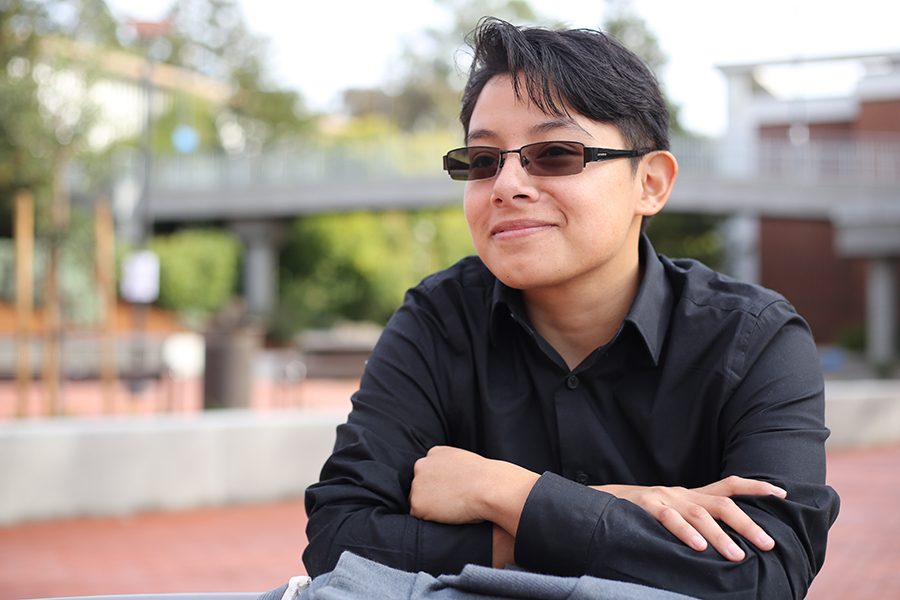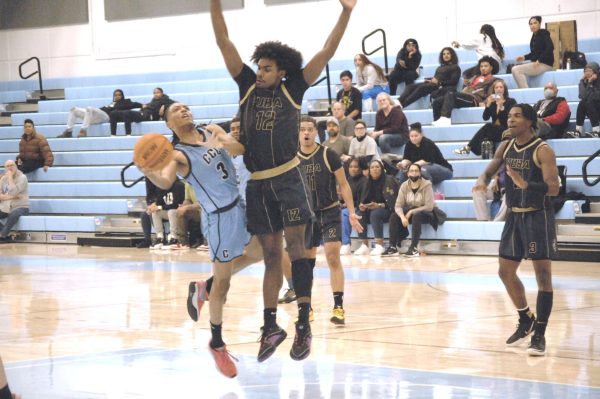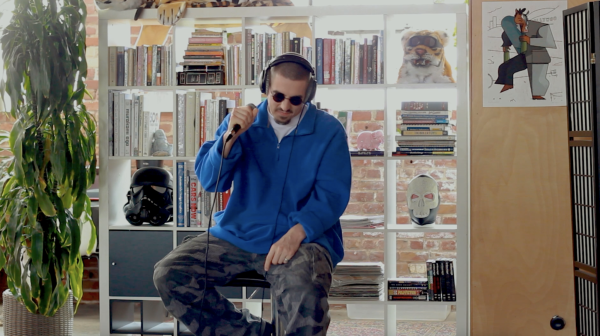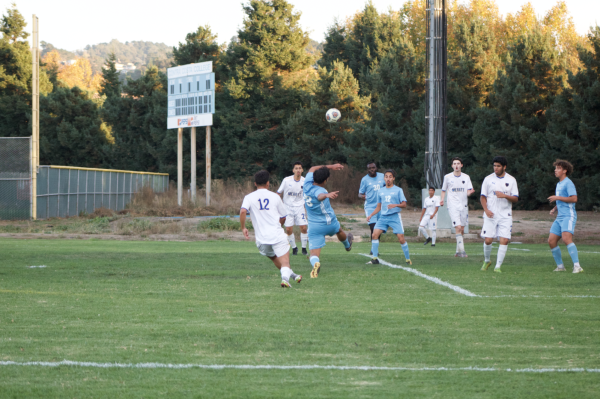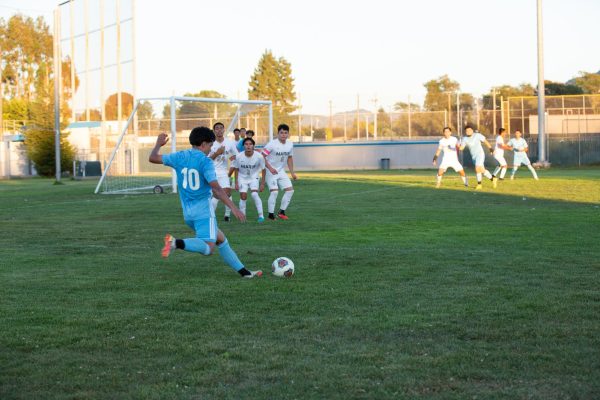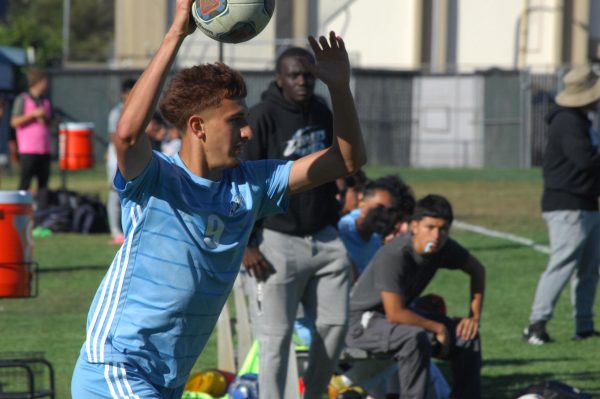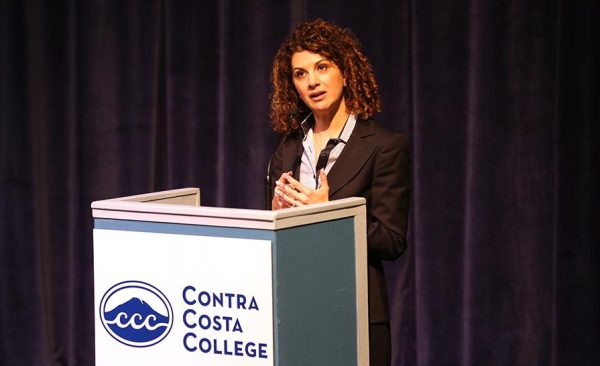Transgender label draws stereotype, perseverance
Business major Christian Sanchez was born female but identifies as male and is in the process of transitioning from one gender to another. Sanchez said it is easy for people to confuse pronouns and sometimes they cannot accept the change someone goes through.
December 7, 2016
Business major Christian Sanchez said ever since he was 8 years old he felt something was different within him.
He grew up with the idea being “the man of the house” meant offering protection, strength and most importantly, the chance to let himself feel like the person he was meant to be — a man.
Sanchez was born female but his gender identity is that of a male. A person whose gender identity is the opposite of their assigned sex at birth is known as transgender.
Gender identity is the person’s internal, personal sense of being a man or woman or someone outside of that gender binary. “Everyone said it was just a phase,” he said.
When Sanchez was 16 years old attending Salesian High School in 2011, he began dressing in a more “boyish” style. It began to feel more comfortable, but the self doubt returns every now and then, Sanchez said.
“(Being a girl) it came with dresses, makeups, boobs. I was like ‘no.’ I couldn’t really do it. I didn’t really want that — I wanted to wear pants, not skirts,” he said.
San Francisco State University sociology major and friend Lupita Garcia said, “As a sociology major and very liberal person I could already tell she wasn’t comfortable being known as a she.” Garcia said she and Sanchez have known each other for about six years. “I met him as a her. I met him as Zoila,” Garcia said. “He was a ‘her’ for a while.”
It was “different” going through the transition and getting used to his preferred pronouns, she said. “It has been challenging and I have been that person who listens to him. I am glad he has allowed me to join him in his journey.”
Sanchez said he decided he wanted to take the next step in high school.
“I’ve heard of transgender women. I was assuming that girls also transition into males. So I looked it up and told my therapist about it.”
His therapist asked Sanchez if he knew what he was doing. “I told her I knew there were treatments, surgeries and I felt like I really wanted to embark on something that I felt would help me be what I wanted to be.”
The physical changes to further the transition may take from months to years to take full effect. He wants to transition from female to male and is considering surgery as an option.
They call it FTM (female-to-male) when born as a woman but transitioning to a male and MTF (male-to-female) when born as a man but transition to a woman, Sanchez said. They may include hormone replacement therapy and sexual reassignment surgery.
Sanchez said the first step his therapist recommended was to attend a Transgender Support Group, a peer group in Berkeley that offers resources and support for those people thinking about transitioning.
He attended the group from November 2015 to April 2016 and decided to take the next step. A doctor must recommend a prescription to begin the testosterone treatment.
Although Sanchez is set on his transition, he keeps his parents in mind and their thoughts about his situation. Culturally, it is not accepted.
He said he remembers his mother telling him, “‘I adopted two girls, not a guy and a girl.’ And I remember when I first met her she always had a dream of having daughters.
“I remember telling myself as a kid, ‘this is the only chance I have to get adopted. If I don’t get adopted we are going to end up split. I didn’t want to lose my little sister,’” Sanchez said.
From birth to around 8 years old, Sanchez was in foster care. He was then adopted by his parents, along with his little sister.
Gender dysphoria is a condition where a person experiences discomfort or distress because there is a mismatch between their biological sex and gender identity.
Sanchez said when a person is going through gender dysphoria they feel displeased with themselves. “You don’t feel comfortable in your own body. People will look at your boobs and say, ‘you are a girl.’ You are labeled as what society wants to see that you are and you feel uncomfortable about it.”
Oftentimes Sanchez is called the wrong pronouns by people who may not feel comfortable or familiar with pronouns. “You keep getting the wrong pronouns. People keep calling you your old name. Or people just won’t accept the fact that you want to change,” Sanchez said.
Contra Costa College psychology major Joey Cunningham said, “I met him as Zoila.” He said what he struggles with most is calling Sanchez by his name, Christian.
Sanchez said when people ask him when it all started or when he started feeling that way, he said it is frustrating to answer the question.
“Since (I was) a kid, but I don’t want to disturb anyone,” he said. In society where differences affect how someone is viewed, for people who are transgender, it makes it an uncomfortable topic.
Sanchez said it is easy to confuse pronouns and sometimes people cannot accept the change someone goes through. Cunningham said he has witnessed an acquaintance at CCC verbally harass Sanchez about his pronoun.
Cunningham heard what one of their acquaintances said to Sanchez: “‘You’re not actually a guy and it’s a real shame when girls like you do stuff like this,” the person said.
“It clicked for me when Chris brought it back to me and he said, ‘this is probably the most offensive thing I’ve ever heard,’” Cunningham said.
Cunningham said seeing his friend have to stand up for himself made him realize it’s not as passive as it may seem.
Sanchez said, “It’s a downer. You can just be straight down in the dumps and there’s no one to talk to about it. There’s no one to just say, ‘I don’t feel like myself today.’ When you say that to someone they just stare are you and say ‘what do you mean?’ Some people say ‘I am here for you.’
“Don’t treat me different. I am still myself. I just want you to grasp that there is something more than what (you see) is happening,” he said.
Cunningham said of Sanchez, “It’s inspiring to say the least and I think that it’s inspiring because it makes me want to step up and do more.”
He said even if it is difficult to remember pronouns or names, and if people get frustrated, they shouldn’t give up just because of making a mistake.
“You have to apologize and keep trying,” Cunningham said.
Garcia said she will continue to support Sanchez throughout the process.
“Ultimately, I am his proud friend,” she said.


